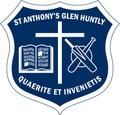
English
Digital Literacy
Digital Literacy
An important consideration in our modern world is the digital literacy of our students! We know that computers and devices are such a big part of our everyday life that students need to continue to develop their skills in using them.
In some ways, this can mean reading and writing are made a lot easier. As we would know in our jobs (or even as you are reading this newsletter right now!) nearly everything has been moved into a digital space. Easier does not always mean problem free though, so we know that we need to continue to help our students with these skills. Many computer and online skills are now outlined in the Victorian Curriculum as a part of the English sphere. Let's go through and explore a few of these skills now:
Know some features of text organisation including page and screen layouts, alphabetical order, and different types of diagrams
(Year Two)
Just as students grow to learn about titles and chapters dictating where they might find information in a book, so should they grow to understand how menus on a website can be used as well. This also includes skills of navigation and the use of the back key when browsing, or the refresh key if a website does not seem to be working correctly. Websites may be used as reading texts by a class teacher, or to source information for writing as students grow in being able to write independently.
Use a range of software including word processing programs to construct, edit and publish written text, and select, edit and place visual, print and audio elements
(Year Four)
Students learn to use programs to publish their writing and all of the fantastic features this might entail such as images, colours, formatting options, fonts etc.
However a key skill in this that often needs to be a classroom focus is editing. We know that most modern apps and programs offer spelling and grammar checks, which can be very helpful! However these are not without issues themselves and our students need to continue to practice positive skills including re-reading their work, or sharing with others. Check out an example of some excellent writing below, a students first draft:
As we can see this writing is detailed, clear to read and uses paragraphing to separate ideas. This student has done a a brilliant job! However as a first draft we can also look at this writing and straight away see some grammatical errors, particularly with the use of capital letters. This text features a number of proper nouns that require a capital letter, yet were not picked up by the software used.
We train our students to practice re reading what they have produced, just as we would with handwritten work in their books!
Use a range of software, including word processing programs, learning new functions as required to create texts
(Year Six)
This is a similar skill to the previous, but as students get older it also starts to encompass digital communication, including emails. Students practice sharing their work, thoughts and ideas with their teachers in a digital space.
In exactly the same way we double check that big important email in our work places, we underline with our students how this mode of communication requires double checking and care as well.
These are a couple of students who have shared their work with their teacher, images that show their understanding of some concepts taught from a Halloween based book. Some great work, but less than ideal spelling on the email titles! It is reinforced with students not to rush, especially in the carrying out of their work tasks.
Page to Screen
It is a really fair concept to think over in regards to the literacy skills of our students and Digital Technologies. As with many things in Education it is a nice balancing act. Students learn to create and navigate with digital devices, but not at the expense of their handwriting and self created work. We love that students can source information almost immediately online, but still expose our children to a wide variety of resources including Books.
Ultimately we know that technology is here to stay, as suggested by the updated skills in the Victorian Curriculum. At St Anthony's we strive for our students to continue to develop their skills in a positive and enjoyable way.
Take care!
Tim O'Mahoney
English Leader



